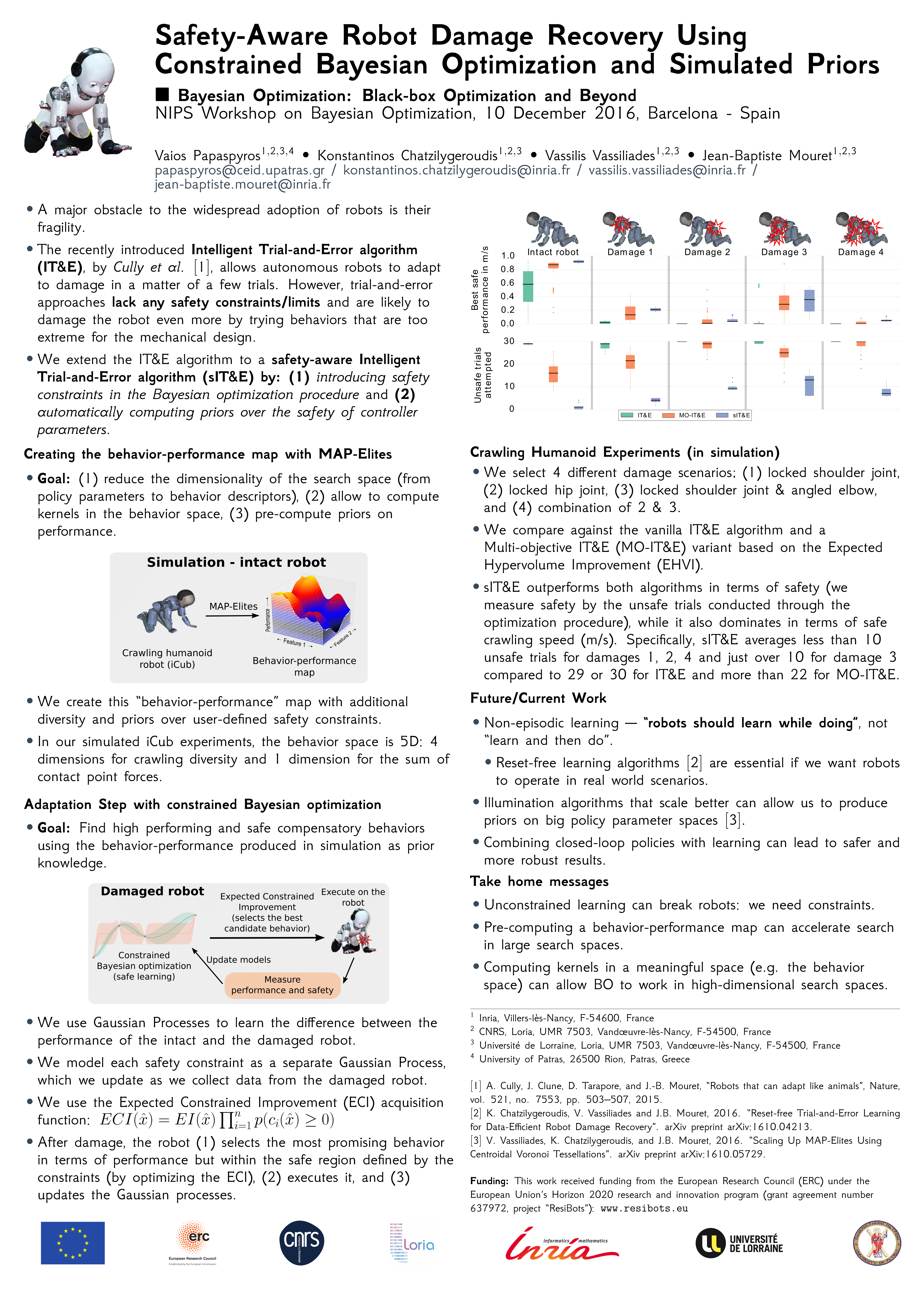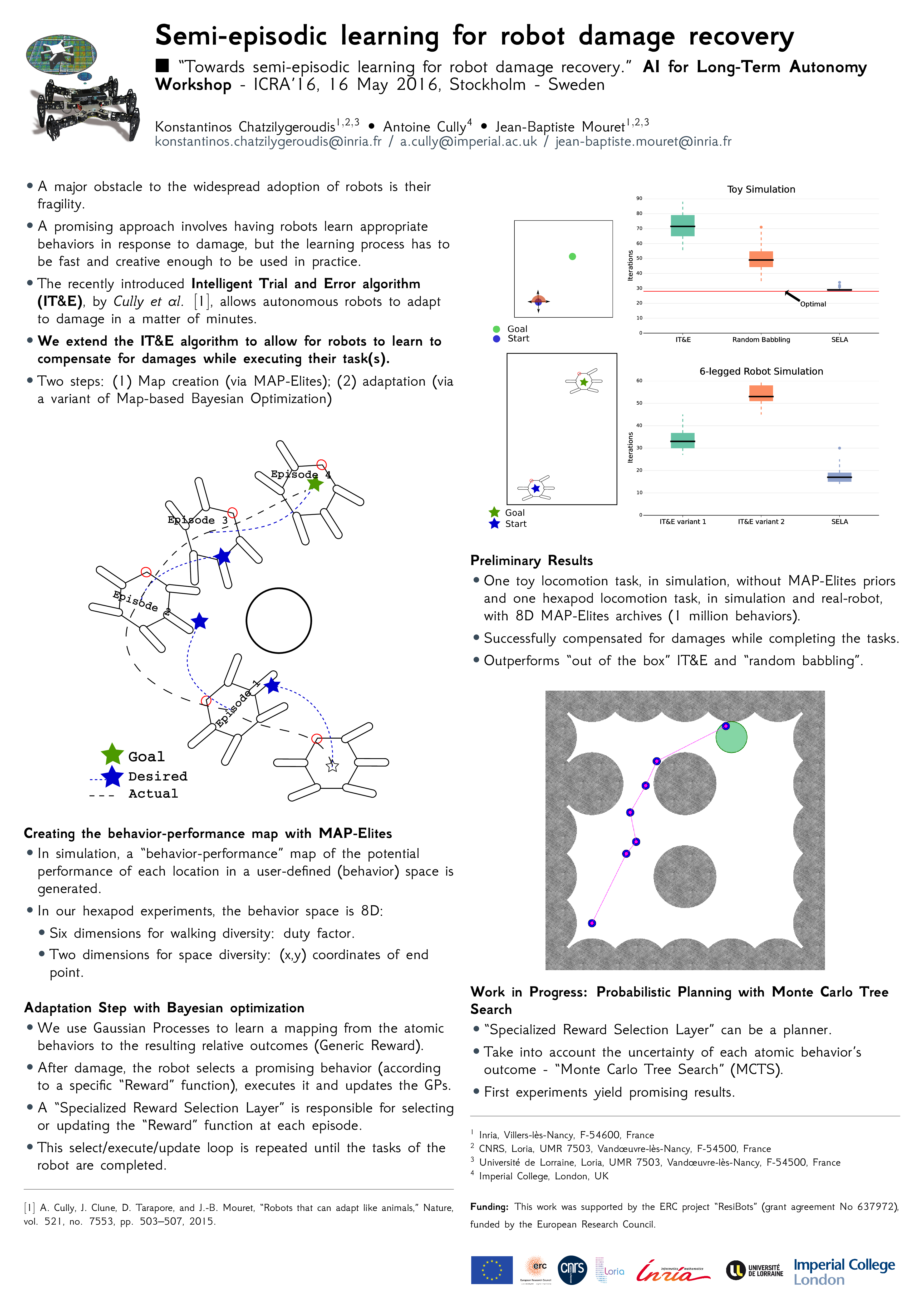Self-Correcting Quadratic Programming-Based Robot Control
"Self-Correcting Quadratic Programming-Based Robot Control"
Farshad Khadivar*, Konstantinos Chatzilygeroudis*, and Aude Billard
IEEE Transactions on Systems, Man, and Cybernetics: Systems
Abstract:
Quadratic Programming (QP)-based controllers allow many robotic systems, such as humanoids, to successfully undertake complex motions and interactions. However, these approaches rely heavily on adequately capturing the underlying model of the environment and the robot's dynamics. This assumption, nevertheless, is rarely satisfied, and we usually turn to well-tuned end-effector PD controllers to compensate for model mismatches. In this paper, we propose to augment traditional QP-based controllers with a learned residual inverse dynamics model and an adaptive control law that adjusts the QP online to account for model uncertainties and unforeseen disturbances. In particular, we propose (i) learning a residual inverse dynamics model using the Gaussian Process and linearizing it so that it can be incorporated inside the QP-control optimization procedure and (ii) a novel combination of adaptive control and QP-based methods to avoid the manual tuning of end-effector PID controllers and faster convergence in learning the residual dynamics model. In simulation, we extensively evaluate our method in several robotic scenarios ranging from a 7-DoFs manipulator tracking a trajectory to a humanoid robot performing a waving motion for which the model used by the controller and the one used in the simulated world do not match (unmodeled dynamics). Finally, we also validate our approach in physical robotic scenarios where a 7-DoFs robotic arm performs tasks where the model of the environment (mass, friction coefficients, etc.) is not fully known.
This work was supported by the European Research Council, Advanced Grant agreement No 741945, Skill Acquisition in Humans and Robots.


